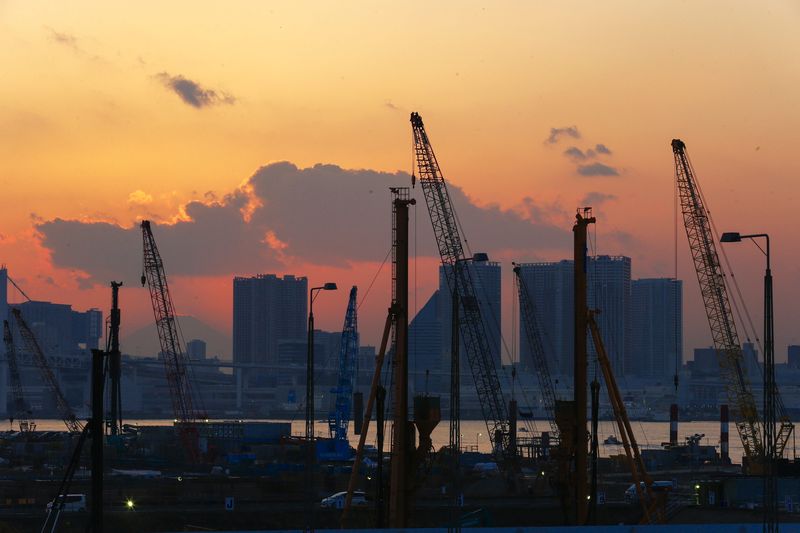Gold bars to be exempt from tariffs, White House clarifies
SYDNEY, April 30 (Reuters) - Japanese stocks scaled near
eight-week highs on Thursday, tracking Wall Street's overnight
rally on promising early trial results of an experimental
COVID-19 treatment, as well as on solid tech earnings and a
surge in oil prices.
The benchmark Nikkei average .N225 advanced 2.6% to
20,281.58 by the midday break, after touching a near eight-week
intraday high of 20,316.96 earlier in the session.
The Nikkei volatility index .JNIV , considered a fear gauge
based on option pricing, dropped 11.2% to an eight-week low of
29.6, reflecting a decline in investor anxiety.
U.S. stocks surged on Wednesday on hopes for a COVID-19
treatment as the top U.S. infectious disease official said a
government study found that Gilead Sciences' GILD.O antiviral,
remdesivir, had a clear effect in cutting the time patients need
to recover. Big tech companies provided the biggest lift to the S&P 500
.SPX and the Nasdaq .IXIC , up 2.7% and 3.6% respecively, and
pushed all three major Wall Street indexes closer to their
all-time highs reached in February. Tokyo-listed oil and gas companies Inpex Corp 1605.T
jumped 5.1% and Japan Petroleum Exploration Co Ltd 1662.T
climbed 3.8%, as oil prices surged more than 10% on Wednesday
after U.S. crude stockpiles grew less than expected.
The broader Topix .TOPX gained 1.5% to 1,470.73 by the
midday recess, with all but five of the 33 sector sub-indexes on
the Tokyo exchange trading higher.
Highly cyclical sea transport .ISHIP.T , iron and steel
.ISTEL.T and mining .IMING.T were the top three performing
sector subindexes on the main bourse.
As some countries have started easing their coronavirus
lockdown and moving toward reopening economies, the business
daily Nikkei reported the Japanese government is planning to
extend the state of emergency by about a month for the entire
country. The news weighed on Japan's top theme park operator Oriental
Land Co Ltd 4661.T , which has already announced temporary
closure of Tokyo Disneyland and DisneySea at least until
mid-May. Oriental Land dropped 3.3%, partly due to disappointing
earnings results for the business year ended in March.
